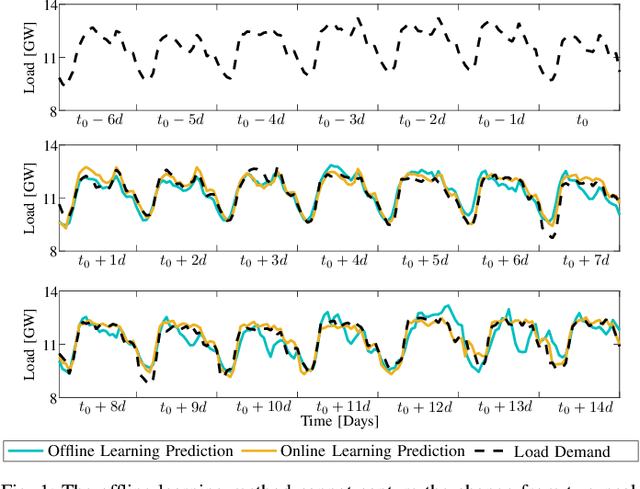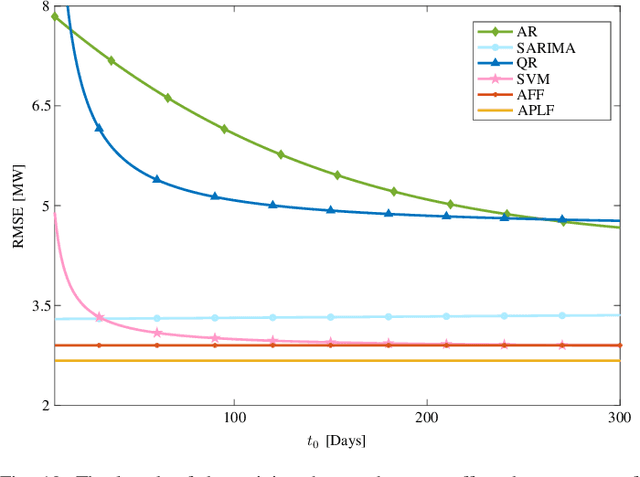José A. Lozano
Probabilistic Load Forecasting Based on Adaptive Online Learning
Nov 30, 2020



Abstract:Load forecasting is crucial for multiple energy management tasks such as scheduling generation capacity, planning supply and demand, and minimizing energy trade costs. Such relevance has increased even more in recent years due to the integration of renewable energies, electric cars, and microgrids. Conventional load forecasting techniques obtain single-value load forecasts by exploiting consumption patterns of past load demand. However, such techniques cannot assess intrinsic uncertainties in load demand, and cannot capture dynamic changes in consumption patterns. To address these problems, this paper presents a method for probabilistic load forecasting based on the adaptive online learning of hidden Markov models. We propose learning and forecasting techniques with theoretical guarantees, and experimentally assess their performance in multiple scenarios. In particular, we develop adaptive online learning techniques that update model parameters recursively, and sequential prediction techniques that obtain probabilistic forecasts using the most recent parameters. The performance of the method is evaluated using multiple datasets corresponding with regions that have different sizes and display assorted time-varying consumption patterns. The results show that the proposed method can significantly improve the performance of existing techniques for a wide range of scenarios.
Mathematical Programming Strategies for Solving the Minimum Common String Partition Problem
May 22, 2014



Abstract:The minimum common string partition problem is an NP-hard combinatorial optimization problem with applications in computational biology. In this work we propose the first integer linear programming model for solving this problem. Moreover, on the basis of the integer linear programming model we develop a deterministic 2-phase heuristic which is applicable to larger problem instances. The results show that provenly optimal solutions can be obtained for problem instances of small and medium size from the literature by solving the proposed integer linear programming model with CPLEX. Furthermore, new best-known solutions are obtained for all considered problem instances from the literature. Concerning the heuristic, we were able to show that it outperforms heuristic competitors from the related literature.
 Add to Chrome
Add to Chrome Add to Firefox
Add to Firefox Add to Edge
Add to Edge